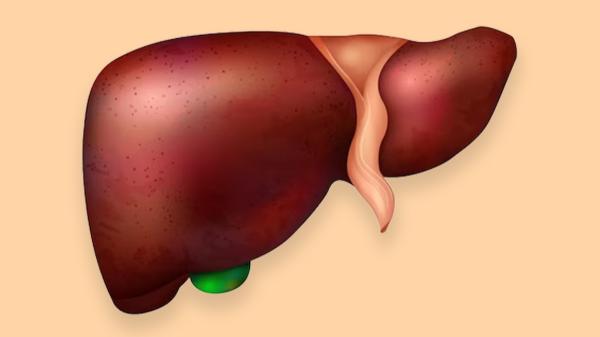
As the rising cost of food items, especially rice reached alarming proportion at the weekend; indications are rife that the Zero Hunger Programme launched earlier this year by the Federal Government, with the aim of achieving food selfsufficiency in 2018 is not feasible. Executive Member of All Farmers Association of Nigeria and Managing Director, Geotech Integrated Farms, Mr. Abdulrasaq Abdulkareem who dropped this hint in an interview with Telegraph, said even with policy consistency, it will take the country about five years to achieve the target.
He said: “This looks more possible in rice production, because private sector companies have made huge investments in rice farming and processing because of existing market for it in the country”.
Abdukareem said that the huge demand for rice in the country, “any investor will make more profit without exporting his produce,” he however, warned strongly against policy summersault on the part of government.
But contrary to government’s assurances that the price of rice would start to fall this month when Nigerian farmers are supposed to start harvesting, a market survey conducted across the country by Financial Derivatives Limited, indicates that the price of the 50 kilogramme bag of rice rose sharply across the country, hitting an all time high of N27, 000 in Benin city, capital of Edo State on Friday.
The price of the cereal started rising when the Management of Nigeria Customs Service reversed itself the ban on importation of rice from the land borders which was lifted when the current management assumed office.
Meanwhile, rather than expect surplus food in the country next year, sequel to the envisaged bumper harvest by Nigerian farmers, the Presidency on Monday confirmed earlier fear of ongoing massive export of Nigeria’s grains due to the drastic fall in the value of naira which has made our cereals the cheapest in the region.
“Huge demand for our grains in the global market is creating an excellent environment for export of Nigerian grains across our borders and unless this is curtailed, Nigerian markets will be bereft of food by next January,” President Muhammadu Buhari’s Special Assistant on Media, Mallam Garuba Shehu said on Pyramid Radio, Kano on Monday. The Minister of Agriculture and Rural Development, Chief Audu Ogbe confirmed these challenges recently at a recent meeting with agro businessmen in Abuja.
“You need to go to Kebbi now to see trucks from Niger, Chad, Mali, Republic of Benin and Upper Volta (Burkina Faso) loading grains. Your naira is so weak now that our crops are the cheapest in the zone.
“By December, they will probably exhaust the crops then by January people will start crying,” the minister was quoted as saying. CEOAFRICA source gathered at the weekend that the looming failure of the zero hunger programmes becomes more frightening as the Federal Government is yet to start buying the cereals to restock the Strategic Grains Reserve silos which were allegedly empted to feed the Internally Displaced Persons (IDPs), even as the 2016 harvest season is fast comi9ng to an end.
The development a source close to the Federal Ministry Agriculture, said, will further threaten sustainable agriculture in the country as the seedlings that will be planted during the 2017 planting season are being exported by farmers to maximize their financial gains while the export boom lasts. But, contrary to the alarm raised by Mallam Garuba Shehu, Senior Special Adviser on Media to the Minister of Agriculture and Rural Development, Dr. Kayode Ololeye, said the 2018 target “is realisable as many Nigerians are showing more interest in farming.” “I am very sure that Nigeria will not only meet the food self-sufficient target but even export food to its neighboring countries,” he assured.
On the reported massive export of grain, Ololeye said Nigeria has enough as farmers are still harvesting their produce, adding that there would not be any reason for the country not to have enough grains as there has not been any record of disaster or flood in the country this year. Similarly, the National Agricultural Seed Council Seed Council has said that fear of imminent scarcity of seeds next planting season and the looming hunger in the country was “an untrue statement”.
According to a statement emanating from the office of the council and endorsed by the Director General, Dr. Philip Ojo, such permutations may have arisen from the preponderance of the current economic hardship, but does not reflect the reality of the situation with the farmers. Also, Sunday Telegraph report that the Dangote Group has closed down its newly built N4 billion tomato paste processing factory in Kano.
This comes as Nigeria’s largest tomato paste processing firm, Erisco Foods Limited has also announced the closure of its tomato processing factory in Lagos, sacking over 1500 workers.
The two main tomato paste processing companies in the country blamed the harsh operating environment and lack of support from the government and the Central Bank of Nigeria (CBN) as reason for the closures.
Group Vice President of Dangote Industries Limited, Alhaji Sani Dangote during his remark at the recent 2nd group meeting of the Zero Hunger Committee in Abuja, said while CBN has refused to support the local manufacturers, the government of China gives their people huge support and waivers that allow them access finance that they do not really feel the forex crunch being faced by their Nigerian competitors.
Meanwhile, the Central Bank of Nigeria last week announced that it was making available $600million to Nigerian manufacturers; but the names of the two tomato processing firms were missing in the list of the beneficiaries the apex bank published on Friday.
It was against this backdrop that the Chairman of Nigerian AgricBusiness Group (NABG) said the only way to grow indigenous capacity in tomato processing was for the government to put in place a clear cut policy on tomato importation and local production.
Source: Telegraph






















